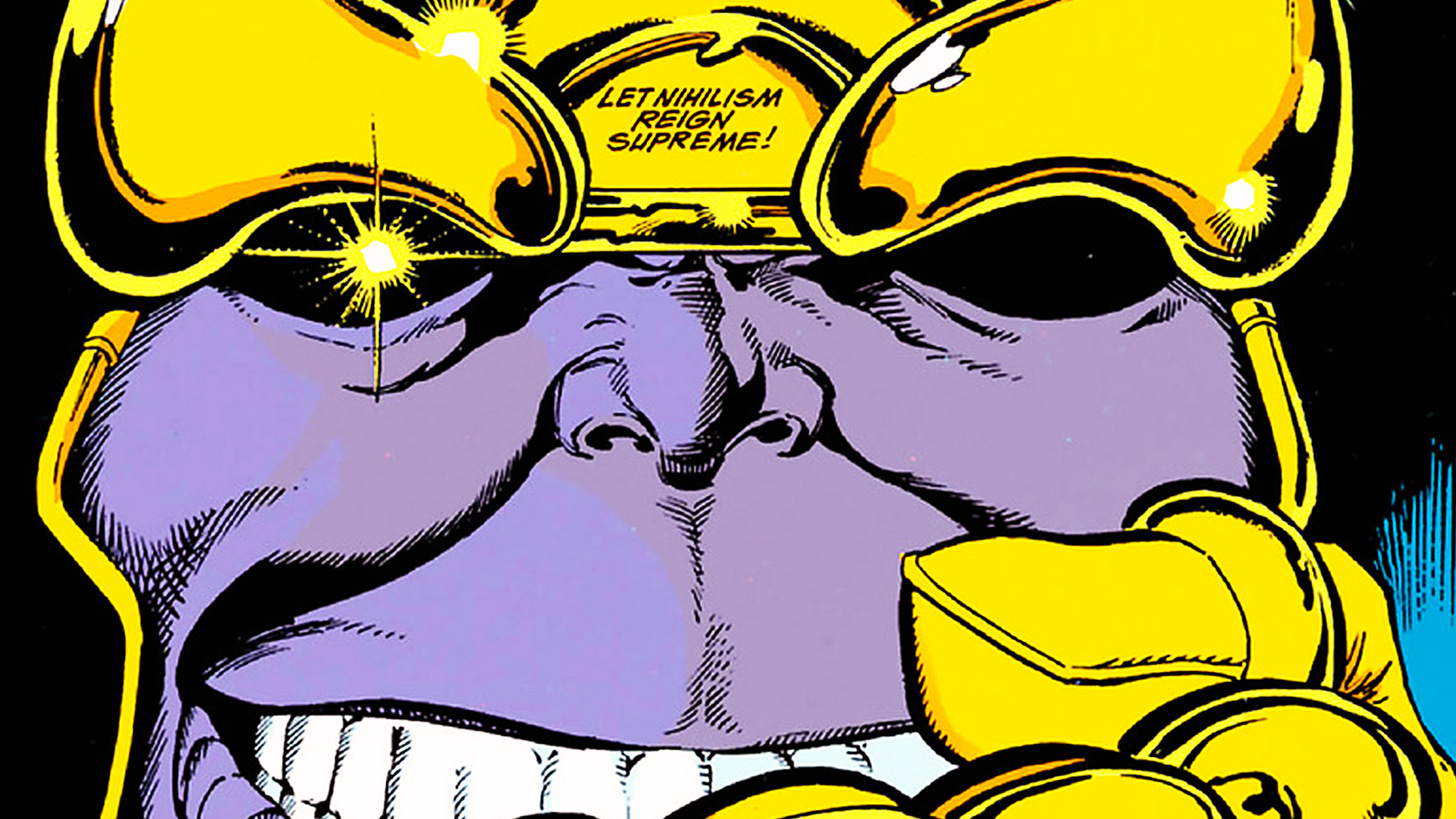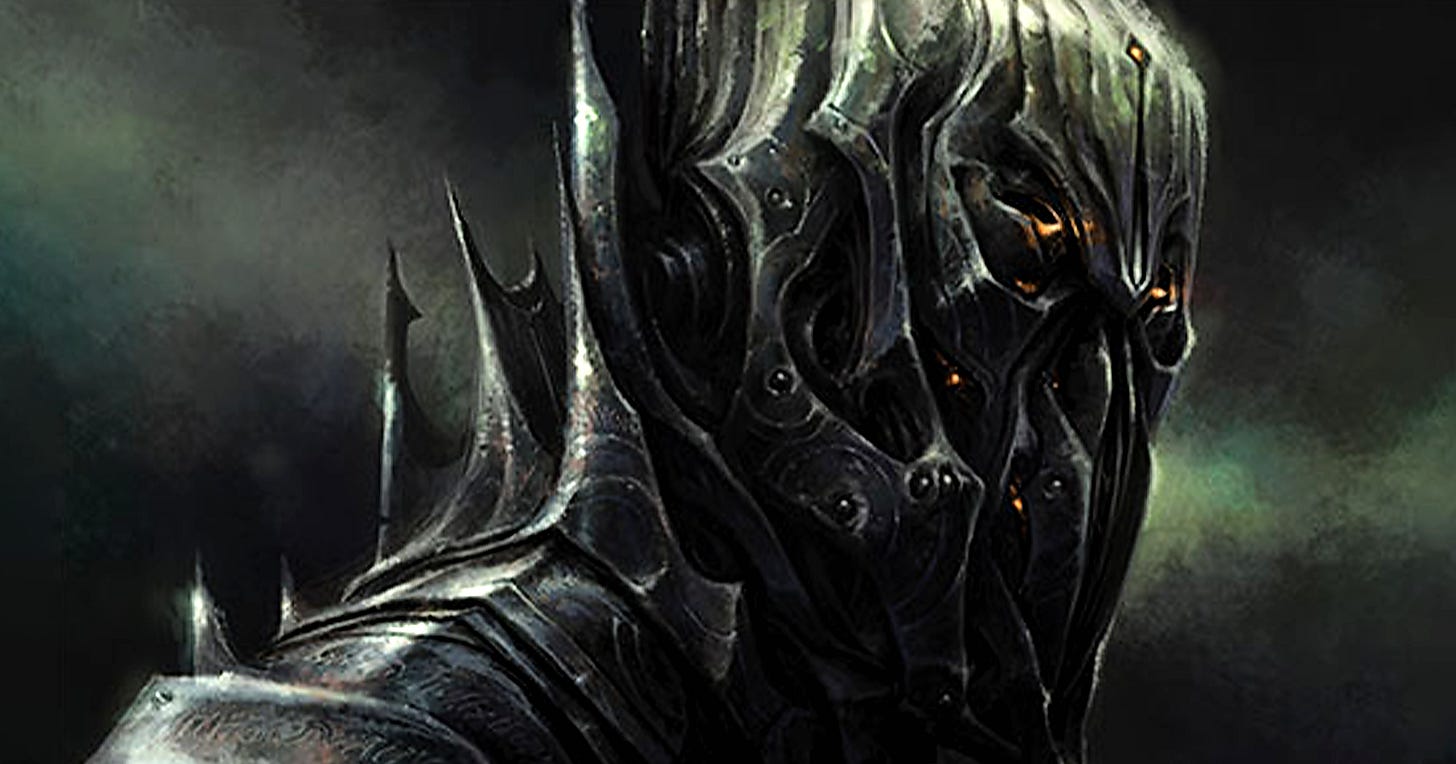The Nihilist Style in Right-Wing Politics: Casting a Snare (Part 1)
(Sketches for The Plato Option)
In the previous article, I looked at the anti-modernists’ failure to raise against modernity any ramparts of note because they did not build on any consistent and robust philosophy. Instead, they either give up, retreating from the polis and abandoning politics in the hopes of recreating conditions they find tolerable on some isolated patch of land, integrate themselves into modernity as either a more individualistic strand of liberalism or as a strand of liberalism dressed in empty slogans (“modernity but patriotic”, “modernity but more like the 1950s”, “modernity but under Christ”), or fully embrace the role of modernity’s villain. It is the last option for reactionaries that I will investigate here. Do the enemies of modernity have any philosophy to build upon if they accept they are the “bad guys” in the story? I contend that they have only a rejection of philosophy, mere sophistry in defence of their childish embrace of playing the villain. I will call this the nihilist style in right-wing politics.
Since we are dealing with politics, philosophy is the subject of our investigation. Philosophy is at the head, and from it flow the sciences, among them the ἐπιστήμη πολιτική, the political science, which allows for τέχνη πολιτική, the craft of governing, i.e. applied politics. The key philosophical question as relates to politics is: what is justice? What do the masters of modernity have to say on justice? Accepting that there is no God, or if there is, God is entirely irrelevant, modernity places Man in the centre of its universe and attempts to fashion a godless anthropocentric morality. Several strands of thought developed from this basis, but I argue that the most successful, and the one whose popular appeal made it the default, is humanism, in the broadest possible definition. Not humanism as a philosophical current, which most consider to be passé, having been superseded by postmodernism, that abolisher of delusions about objectivity and the quest for truth, but as a tangible social force, a moral centre guiding the actions of millions. Postmodernism has its role, and it’s far more subtle—if humanism is to play angel, postmodernism will always be there to devilishly add, “well, it doesn’t really matter anyway because what’s truth”, but only behind closed doors, as a way to let off some steam from the uncompromising dictates of full-time moralism.
If humanism is the true religion of modernity, the ethics of modernity are centred on free individuals making choices. In Existentialism Is a Humanism, Jean-Paul Sartre defended his version of existentialism with precision and clarity which makes this famous lecture a very handy summation of the new religion’s key points. I do not assert that Existentialism Is a Humanism is an adequate summation of Sartre’s philosophy, nor do I assert that pop humanism is derived from Sartre; I am merely pointing to this lecture as a good way to grasp the philosophical underpinnings of humanism. In fact, I very much doubt Sartre’s existentialism has much in common with the contemporary strands of humanism. But he put things in simple terms that can illuminate much about today, even if he intended quite a different thing. “Nothing can save man from himself” is one such dictum which escapes the confines of Sartre’s philosophy and becomes a great way to understand humanism as modernity’s chief religion. Without God, man must make something of himself out of nothing, and this creates a moral imperative to make something of humanity as a whole. In pop humanism, justice means simply: “no man left behind”. As humanity is self-made and its character is defined as a process, progress becomes by necessity a soteriology.
Opposed to the religion of pop humanism, within the paradigm of modernity, is anti-humanism, an attack on humanist standards. Again, I do not mean philosophical anti-humanism, such as the various attempts at a postmodernist deconstruction of a “hopelessly essentialist” humanism, but simply as the inversion of pop humanism. In simple terms, a faithful devotee of pop humanism might say “we owe it to those suffering all over the world to offer shelter, because we are privileged”, and the anti-humanist will say “we owe nothing”, without offering any alternative ethical justification beyond, at best, a deconstruction of ethics. What I mean is mere reaction to the dominant paradigm, the reactionary playing villain within modernity.
To be “reactionary” in a progressive universe is a moral judgement. It is, in effect, to be opposed to the Good, which is progress. This is the metaphysics modernity’s atheism demands. And the reactionary loses most bitterly when he does not offer a moral alternative, doesn’t say to the other side “I reject your false paradigm, here, I offer the very truth you oppose with your lies and delusions”, but instead meekly mumbles “I’ll show you who’s bad guy...” The progressive Sun remains the centre of the universe; the reactionary merely makes shadow his cause.
It might seem paradoxical to associate this reaction with the right, as right-wingers themselves are fond of blaming postmodernism for all the modern world’s ills. Yet it is undeniably true that this kneejerk response to the humanist paradigm is very popular among those who self-admittedly belong to the right. This “evil right” is a tendency within the broader right which embraces the chaos, and sometimes even admits to being of Satan’s party. The people who claim to be National Socialists today are not serious enough in my eyes to merit much investigation beyond the psychological affect, based on the empowering optics and not any content, yet the flirtation with such ideas is part of the phenomenon I am investigating. When you play villain, it is easiest to first go to modernity’s Satan himself. I will call this trend the “Ariosophic”. It exists mostly online, and if it ever gets to the ballots it expunges its openly Nazi elements to embrace populism, but ultimately it is a minority even among the e-right. This trend is the racialists who seek to use “paganism” as an aesthetic that will give their movement cohesion. The focus on aesthetics in the place of metaphysics is the core of the nihilist style in right-wing politics. The “Ariosophists” are rigid biological determinists who believe that religion is a mask worn by the state when it wishes to control the masses. I will not go into further detail on this tendency, as I have touched upon it, with especial focus on the so-called “Apollonians”, in another article. For now, keep in mind only that aesthetics is the important part, as this will be the subject of the next part’s investigation.

Via its various schools but primarily via the pop humanism that has taken root in the minds of the populace, the left can supply meaning, and indeed an actionable plan. The right is stuck merely reacting. Given that the central yearning in modern man’s life is meaning, this puts the right at a catastrophic disadvantage. What could have been the right’s great strength is turned into its greatest weakness. Why greatest strength? Simply because the right, once upon a time, could offer meaning. Rigid metaphysical certainties the left today can’t offer. If humanism is the new religion, within the accepted meaninglessness of life, we are called upon to “make our own meaning”. The left can thrive on this response. Indeed, it is adept at using this metaphysics of emptiness and make-believe to its benefit.

This “make your own kind of music” core can be painted in many different colours. You can paint it a bright, raging-boner Schiaparelli-Pink. The neoNietzschean current of thought presents “make your own kind of music” disguised in heroic language that has something of the pre-disenchanted world, but the essence is identical to modernity’s frightened escape from nihilism. You can paint this essence the bleakest, most unctuously oppressive fuligin. The Lovecraftian/Ligottian option is always open, also drawing upon the horror of the void a veil of Romanticism, only a Romanticism that revels in the emptiness. Think of it as Nietzschean Gothic. But remember: any criticism from the anti-humanist side shares the same metaphysical assumptions as the humanists, in believing that seeking inherent as opposed to applied meaning is a delusional anthropomorphism. They fully agree on premises. The anti-humanists merely think that the humanists don’t go far enough, but offer no response other than reaction, because that is the entire point of their stance.
Whatever colours you pick, “make your own meaning” will only work if you believe the meaning becomes real in the process. This is where the humanists win. The anti-humanists, starting from the same premises, perform an exercise in schizophrenia. One can’t split their mind in two so that one part remains forever smugly smirking above, self-satisfied with the knowledge of nihilism’s metaphysical certainty, the other doing the mucky work of actually believing below, as untouched by doubt as the most industrious of Medieval serfs. And if, on top of your inability to find a believer’s fervour in your response to nihilism, you belong to the political right, you are guaranteed to fail. The left alone holds the key to reconciling its nihilism with its praxis of caritas: empathy as the Balm of Gilead. In the darkness of a meaningless universe, minimising harm is the only moral absolute. Quite differently applied compared to its Epicurean origins, modernity’s minimisation of harm is applied humanism. In this way, the left manages to marry its individualist and its collectivist impulse, bridging them over its uniting nihilism. This is not taken to its logical conclusion by most, of course, except for the transhumanists, who represent an idiosyncratic but ultimately more consistent school of progressivist soteriology. Nick Bostrom’s The Fable of the Dragon-Tyrant is a very illuminating summation of this in fairy-tale form. In it, the reader is exhorted to fight death, to rebel against nature, to slough off all dogmas and seize immortality. If you identify as a right-winger and this description ignites in you some passion, you are a living image of the right’s failure. Because the right, from being the party of rock-solid metaphysical absolutism, has been reduced to begging for scraps from its master, the Grand Seigneur of Compassion, the Lord of Empathy, the left. If the game is to be played according to “make your own meaning” rules, the left has an ethical advantage the right will never beat.
The left can supply meaning by giving a materialistic spin on Christian eschatology: God won’t save you, but being kind will, and together, we’ll build the perfect future. We see the atheist compelled by humanity’s terrible freedom to demand universal caring. To avoid “making of man an object” as Sartre says, the atheistic existentialist recognises in the freedom of others a validation of his own, and in the epochal stability of the human condition a call for universalising the subjective. However dissatisfied many of his detractors may be with his syllogism is beside the point. What concerns me here is the appeal of this notion; Sartre is merely an illustration which suits my purposes, a clear-headed expositor of a sentiment that set modernity alight with humanist passion. If you wish to see it in action, simply talk to people. Or visit Reddit. There is genuine religious fervour in the soteriology of the modern atheist whose heart leans left. Whether it stands to philosophic scrutiny or not, there is no denying the triumph of this notion that man is free to create himself and therefore must work to create humanity. Notice how its deniers are framed: unenlightened, lacking empathy, not good people. In the mouths of the masses, the demand for atheist caritas is a sacrament and needs no philosophical justifications.
Humanism gives way to transhumanism, not anti-humanism. The transhumanists have a full soteriological program fully consistent with the premises of the humanists. They want to save you from the utter darkness, and they affirm that the morality of individual choice is sacrosanct. The anti-humanists, if they attempt to launch an attack against modernity, will appear as villains. They want to fight progress, but they are postmodernists. They are the losers of losers. They have chosen the worst of all positions. They fail in everything save the teenager’s satisfaction in feeling they are edgier than their boring old parents.




great piece
Your arguments are correct and have been said by others before, but the usual answer given is just a return to Abrahamism.